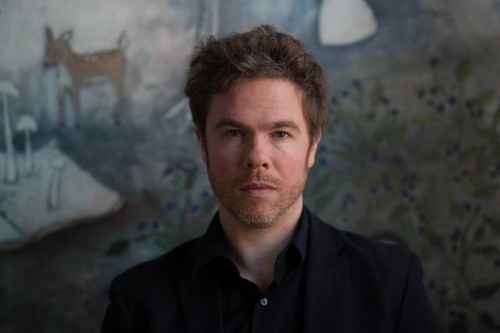In 38 years of life, Josh Ritter’s songwriting has already been compared to Bob Dylan’s. He’s authored a New York Times “best-selling novel” that drew praise from legendary horror author Stephen King. He has run three marathons.
One of his songs, “Change of Time,” accompanied an episode of the TV series “Parenthood,” in addition to the trailer for “The Other Woman,” a film starring Natalie Portman.
Despite his extraordinary résumé at a relatively young age, Ritter considers it an accomplishment just to be alive.
In his blog, “Book of Jubilations,” Ritter revealed in 2012 that he was “hours away from death” in a hospital emergency room with pained and swollen muscles throughout his body after overdoing it on a run.
“A doctor came in and told me what we had suspected,” Ritter wrote. “I had an acute case of exertional rhabdomyolysis, a condition caused by a breakdown of muscle fiber into the bloodstream.”
“Five or six more hours and my kidneys or liver would have failed,” Ritter said, elaborating in a recent phone interview with Highway 81 Revisited from his home in Woodstock, N.Y.
He addressed his scare with mortality while discussing his upcoming appearance in the intimate Chandelier Lobby inside downtown Wilkes-Barre’s F.M. Kirby Center.
Ritter’s bluegrass buddies from Boston-based Barnstar will open for Ritter’s set Thursday at the Kirby. The show starts at 7:30 p.m., and tickets are still available at www.kirbycenter.org.
Ritter and members of Barnstar will likely gather together on stage for a number or two at some point during the evening at the Kirby, Ritter said.
An Idaho native, Ritter began writing songs as a teen after abandoning lute lessons and buying his first guitar at a Kmart.
He recorded his first album at the age of 21 and gradually established a following in Scotland and Ireland, playing open mic nights at taverns in those countries. His gigs there attracted producers, allowing him to eventually turn music into a full-time job.
Ritter has since recorded a total of seven studio albums.
Google his name and you’ll find relatively little about Ritter in media accounts. He acknowledged he values his privacy — as much as that is possible. He realizes the reality of fame and the necessity of public interaction.
Crowds bring him out of his shell and provide something of an escape.
“I’m an introvert at heart,” said Ritter, who has a 2-year-old daughter Beatrix with his companion, novelist Haley Tanner. “I like to interact (with fans) in a way that’s normal for me — playing on stage and writing. (Fans) welcome interaction, and I certainly need that.
“But I do. In between shows, I want to go into radio silence. It’s two extremes. In a way, I found a perfect job for that. This whole career has come out of that (dual) need” for privacy and fame.
Ritter also felt the need to write a book, and he spoke of the genesis of the 2012 novel he wrote, “Bright’s Passage,” which drew praise from Stephen King and the New York Times. Born from his songwriting, the book is about a young farmer from West Virginia who winds up in World War I and communicates with his guardian angel through the voice of a horse.
Ritter explained that the subject matter from the song that he had developed into a book became too complex for a single tune, and he just ran with it: “I had this one (song) sitting in front of me,” recalled Ritter, named one of the “Greatest 100 living songwriters” by Paste magazine in 2006.
“It didn’t fit the record. Once your imagination starts going, it starts flying. You just want to go off in a direction. It was an amazing experience. I was on tour when I was writing that.
“It’s one of the reasons I’ve always enjoyed stories about explorers,” he added. “They start from a blank page too. Everyone starts off and wanders off this great expanse. That’s so exciting. When I hear a new song, I have to go write.
“I have to recreate the experience in my head. You can never do that. You can try. I think that’s where most writing comes from. When I was a little kid, I was obsessed with basketball, the (Detroit) Pistons’ run (in the late 1980s and early 1990s). I loved all those guys. I remember watching it. But I couldn’t watch it.”
Instead, Ritter went outside and shot hoops.
He’s better at doing, he said, than watching. And he’s chosen the same road musically, ever since.
As for his health issues, Ritter says he’s gotten those under control with the help medication. He’s now physically able to run 6-7 miles a day.
“I feel good, feel fine,” Ritter reported. “You just have to be careful!”




Leave a Reply